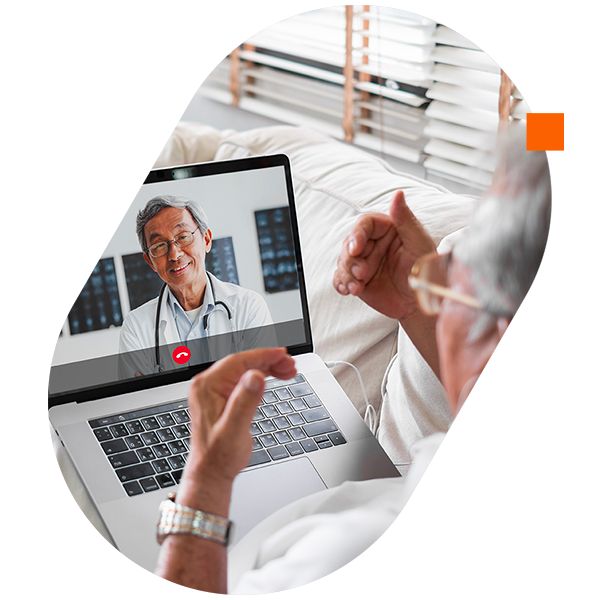Real progress happens when the advantages of a new technology become available to everybody
Henry FordIs it possible to improve a patient’s quality of life during the diagnosis, treatment and surgical process by using enabling technologies? How do we provide clinicians with the tools and applications that can guarantee the greatest real time effectiveness of drug treatments, bioengineering solutions and surgical techniques?
New tools based on artificial intelligence applications are increasingly to be found in the medical sector and, thanks to their ability to process large amounts of data, they can quickly give clinical diagnoses, in some cases even faster than the usual methods. Other applications are similarly effective in the pharmaceutical sector, where artificial intelligence is used to predict a drug’s possible side effects and potential new clinical uses.
The coupling of nano-electronics and optoelectronics to medicine and biology is opening truly innovative roads in the field of pharmacology and neuroscience. On one hand, it promises to bring medicines that can selectively target cells, increasing their therapeutic efficacy and reducing side effects, and on the other, to develop neuro-electronic interactions and connections linked to movement control and sensory acquisition.
Finally, new techniques and methods of extracorporeal blood treatment in the field of cardiovascular medicine are becoming increasingly less invasive and more efficient, enabling treatment in emergency rooms and clinics and avoiding patient hospitalization to intensive care units.
Extracorporeal blood treatment is one of the areas of expertise and experience of Teoresi MedTech, thanks to its participation in over 15 years in dozens of research, development, industrialization, and certification projects in this sector.
The concept, design, realization, and MDR certification (European Medical Device Regulation) of the CHIARA device are a consequence and demonstration of solid experience.
The challenge is to create systems which collect information and images guided by artificial intelligence which, on the basis of machine learning algorithms, make diagnoses, which are then used by clinicians. The aim is to reduce the risk of human error and increase the quality of life and life expectancy.
IoT and 5G technologies are set to have a significant impact on the Healthcare sector in providing prevention means, remote monitoring and care, remote surgery, online medical consultations and access to medical records and health record data, making more accurate and rapid analysis possible.
Micro and nano-electronics devices are now only a few nanometres in size. This is much smaller than the typical human cell and this suggests a future of micro-instrumentation and micro-robots able to carry out in vivo diagnostics and implement precise local treatment on cell groups.
The challenge will be to couple the electronics with the body’s tissues and cells, overcoming the risks of rejection, selectivity of action and energy. But the journey to neuronal/sensory devices, such as silicon retinas and cochleas, or diagnostic chips and drug delivery is under way.
Within the field of extracorporeal blood treatments, Teoresi MedTech designs and manufactures solutions, groups, and components to support its clients in the realization and technological advancement of their devices. Here are some examples:

Teoresi has developed and continues to work on a large variety of biomedical devices, including insulin detectors, measuring devices for bodily fluids, those to stimulate epidermal growth NPWT (Negative Pressure Wound Therapy) and piloting lasers for medical use. The company’s strength is its ability to design and test software together with integrating the hardware.
We are have developed tools and devices for the diagnosis and treatment of oncological diseases based on smart micro and nanotechnologies for personalised medicine applications.
The project has involved the development of software and firmware to control of cutting-edge optoelectronic micro-devices and is being carried out in partnership with European institutes and national universities.
The Teoresi teams have also worked in Quality Assurance and automatic testing of the production lines of lab instruments in accordance with various standards such as ISO 13485 and FDA.

